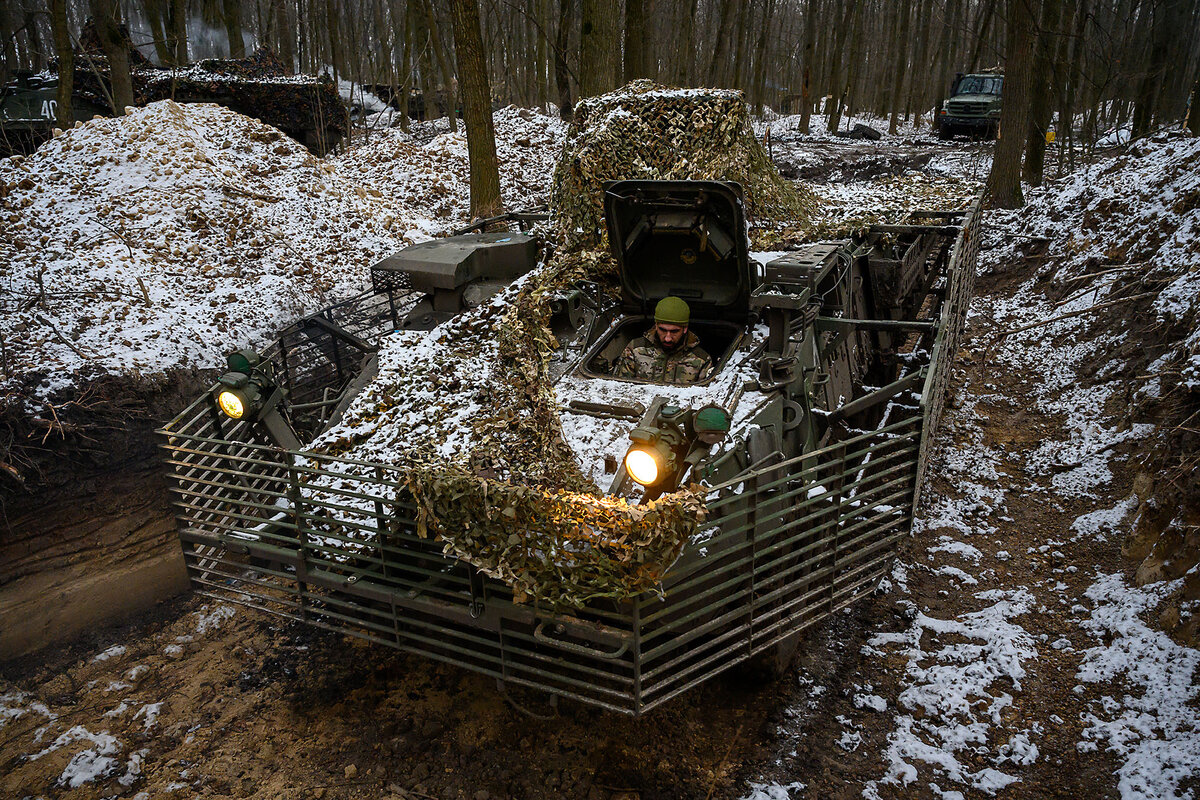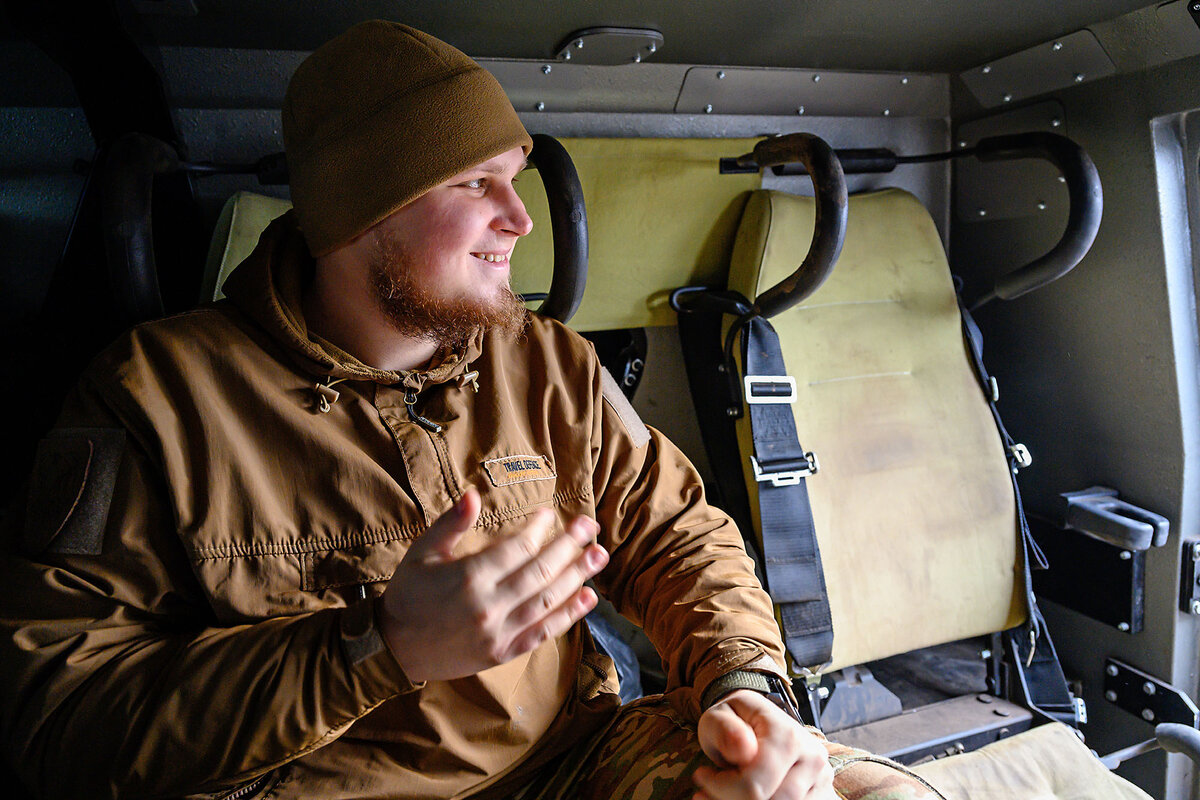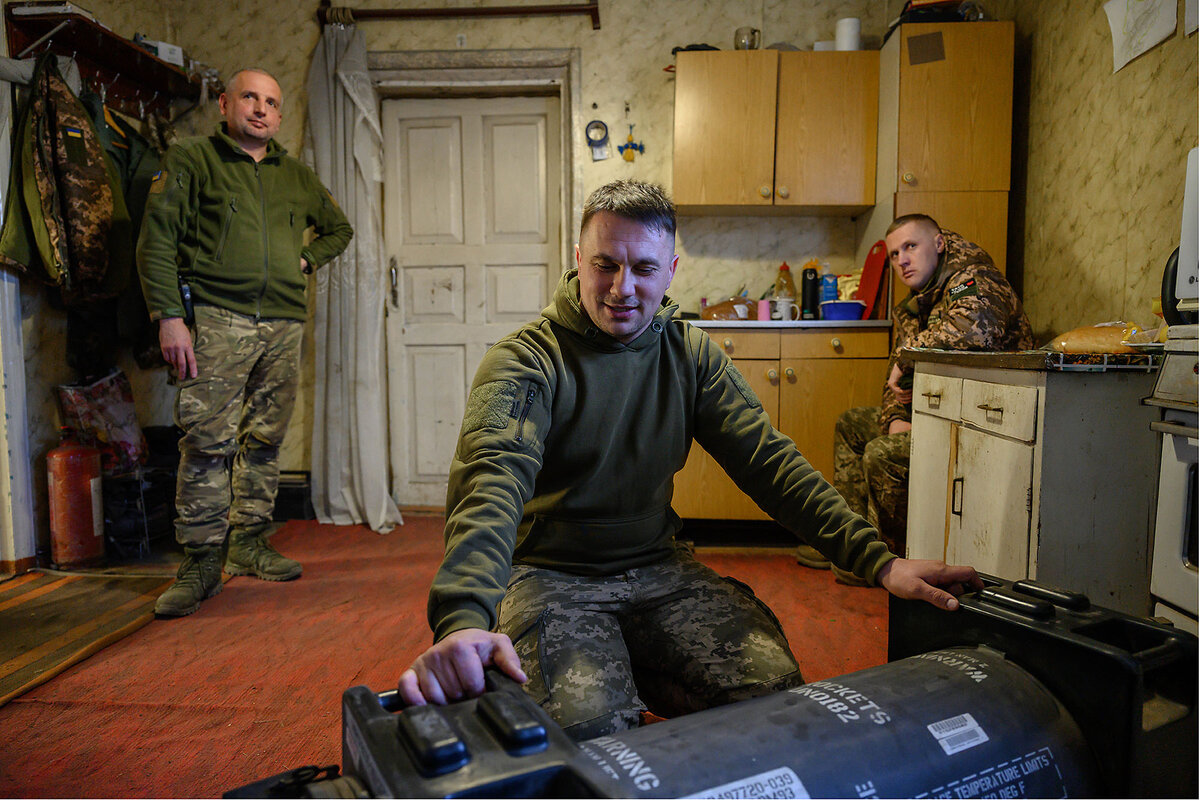Ukrainians urge Trump to back peace bid with arms
Loading...
| Sumy, Ukraine
As Donald Trump takes up his new job in Washington, soldiers on the frigid battlefields of eastern Ukraine and civilians in towns enduring repeated missile bombardments have the same advice for him.
If Ukraine is to prevail in the war, or even reach an acceptable peace with Russia, the new U.S. president must maintain a flow of American weapons and cash, they say. The country’s future depends on it.
“The only language that Russia understands is the language of force, the language of power,” says Kira Rudik, an opposition member of the Ukrainian parliament. “My key piece of advice would be not to trust [Russian President Vladimir] Putin.”
Why We Wrote This
Donald Trump says he wants to leave a presidential legacy as a peacemaker. Ukrainians have some advice for him on how to go about that in their country.
Campaigning for office, Mr. Trump claimed that he could end Ukraine’s three-year war in 24 hours. Secretary of State Marco Rubio on Monday said a Ukraine-Russia ceasefire was a “top priority” and that President Trump would begin work on it “almost immediately.”
But Trump advisers have rolled back the timeline for peace by months. And suggestions that Washington might propose freezing current front lines – leaving Russia in control of some 20% of Ukrainian territory – are very hard for Ukrainians to swallow.
The conflict is at one of its most precarious moments for Kyiv since fighting began. Russian troops are advancing steadily in the southeast, while Ukraine is struggling with a chronic shortage of soldiers, a constant need for new weapons, and almost daily barrages of Russian missiles and drones.
Last week alone, Russia launched more than 660 bombs, nearly 550 drones, and 60 missiles against Ukraine, President Volodymyr Zelenskyy said Sunday. He appealed for more Patriot air defense systems for “more protection of life.”
U.S. weapons “crucial” to Ukraine
Ms. Rudik notes that President Joe Biden, in his final speech, said that he had kept Ukraine free. “Pressuring Ukraine to capitulate, or to negotiate, will look worse than what Biden did,” she says. “I don’t think President Trump would want to be seen as someone who has done worse than Biden. This is what is keeping us optimistic.”
President Trump did not mention Ukraine in his inaugural address on Monday, but said that his “proudest legacy will be that of a peacemaker and unifier.” The measure of his success, he said, will not only be “the battles we win, but also the wars that we end.”
Presidents Zelenskyy and Putin both sent congratulations. The Ukrainian leader praised President Trump as “always decisive, and the peace-through-strength policy he announced provides an opportunity to strengthen American leadership and achieve a long-term and just peace, which is the top priority.”
After being sworn in, President Trump said Mr. Zelenskyy “wants to make a deal,” and that Mr. Putin was “destroying Russia” by not making one.
Yet platitudes of peace collide with acute realities for Ukraine along the 600-mile front line, which buzzes with drones and the near-constant reverberations of artillery and rocket fire.
One Ukrainian company commander of the 1st Battalion, 82nd Separate Air Assault Brigade, who goes by the call sign Jesus, says the American-made machinery his men use on the northeast front and inside Russia has been essential. The Bradley Fighting Vehicles and Strykers were key to Ukraine’s surprise cross-border advance into Russia’s Kursk region last August.
“For this operation and this warfare, it is crucial to have those [American] vehicles, because we need to get our territories back, we need to advance,” says the commander.
Ukraine’s message – “Don’t trust Putin”
What does Donald Trump need to know about the war?
“I can tell you for sure, 100 million percent, that if you think that Russians will stop if they conquer all of Ukraine … you are very mistaken,” the company commander says.
Similar warnings echo 150 miles southeast, among officers in a Ukrainian anti-tank unit in the Pokrovsk region, where Russian forces have been advancing for months. In pride of place are U.S.-made Javelin anti-tank missiles, responsible for 99% of the unit’s successful hits.
“It’s very hard to overestimate the importance of this,” says Capt. Serhii Nazarenko, of the Anti-Tank Company, 68th Separate Jaeger Brigade, standing by a screen showing drone feeds from the skies above Russian lines. Ukrainian prowess in knocking out armored columns has forced Russia to shift to small-scale, high-casualty infantry assaults, he says.
The first Javelins to arrive in Ukraine were approved during the first Trump term.
“He might want to get under the shelling with us – that would explain everything, much better than any words,” says Senior Sgt. Nazar Galadza.
“It’s important for him to see the consequences of enemy action, the consequences of our partners’ delay,” says Captain Nazarenko. “Here he would be able to see the real face of our enemy.”
“Unfortunately, no words and no sanctions can stop the war, and no words or sanctions can win the war,” he says. Only weapons can do that.
Almost three years after the Russian invasion, certain truths are evident, says Maria Avdeeva, a Ukrainian security analyst and native of Kharkiv.
“What is clear for me, and clear for everyone in Ukraine,” she says, is that “you cannot trust Russia, and you cannot trust Putin. He never keeps his word,” says Ms. Avdeeva. “He does not believe in any kind of agreements or talks that are not supported by strong power.
“I hope Trump and people around him … realize that if Putin succeeds, that will … embolden [Russia] to go for more,” she says.
A Russian success would also reverberate far beyond Ukraine, she says. “This will give an example to other countries like China, North Korea, and others. They will see that a weak America allows them to do the same in their regions,” says Ms. Avdeeva.
“If Putin’s blackmail works, why not do it in other parts of the world?” she wonders. “Why shouldn’t China invade Taiwan?”
Oleksandr Naselenko supported reporting for this story.









